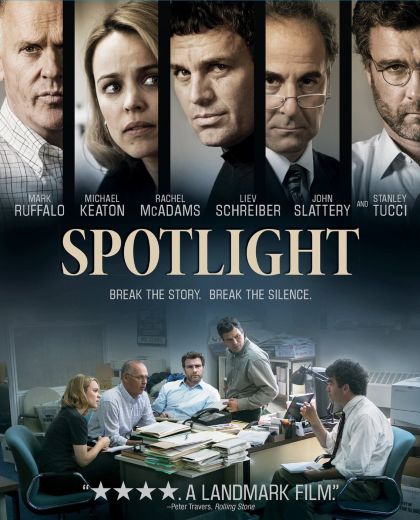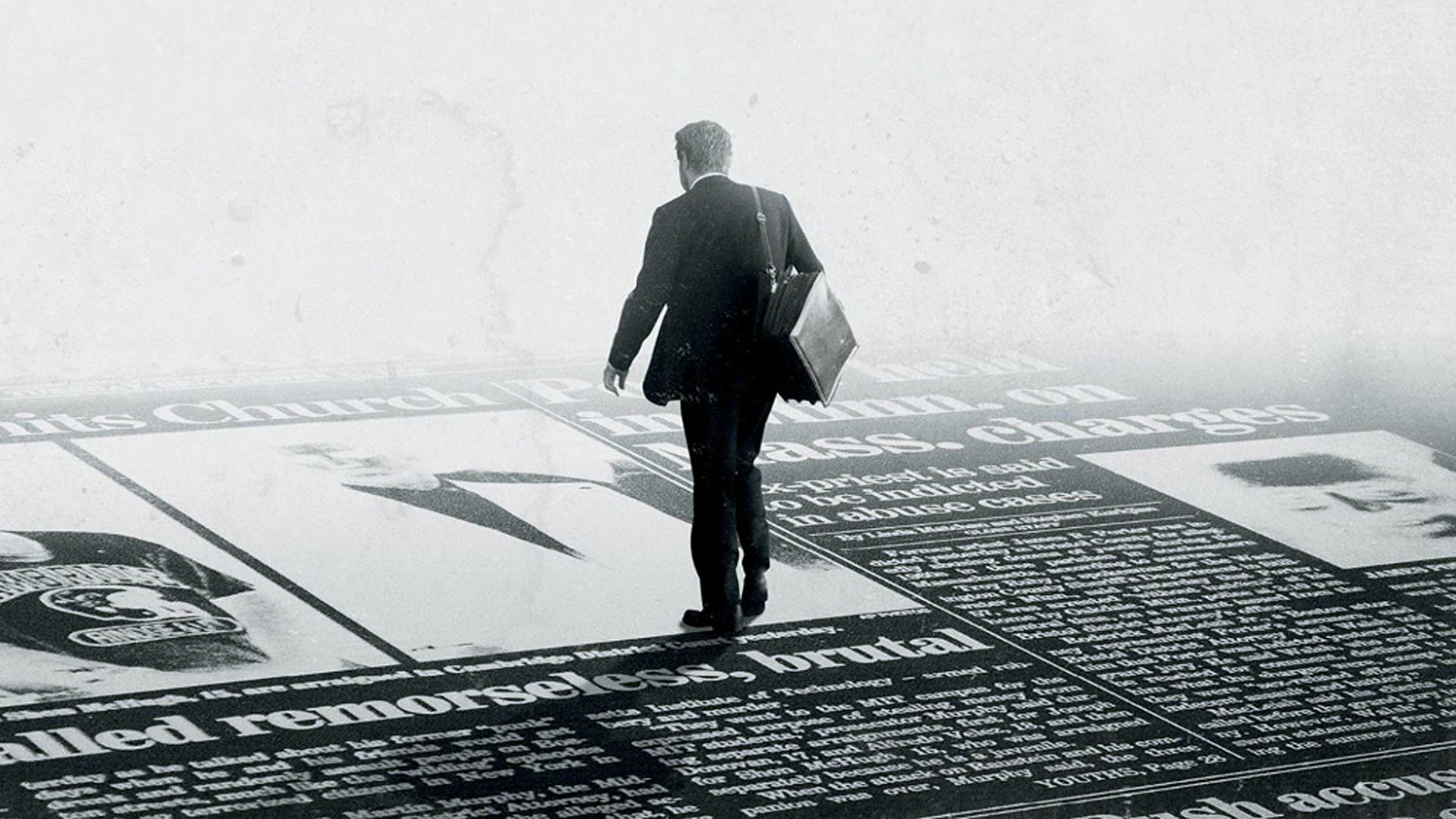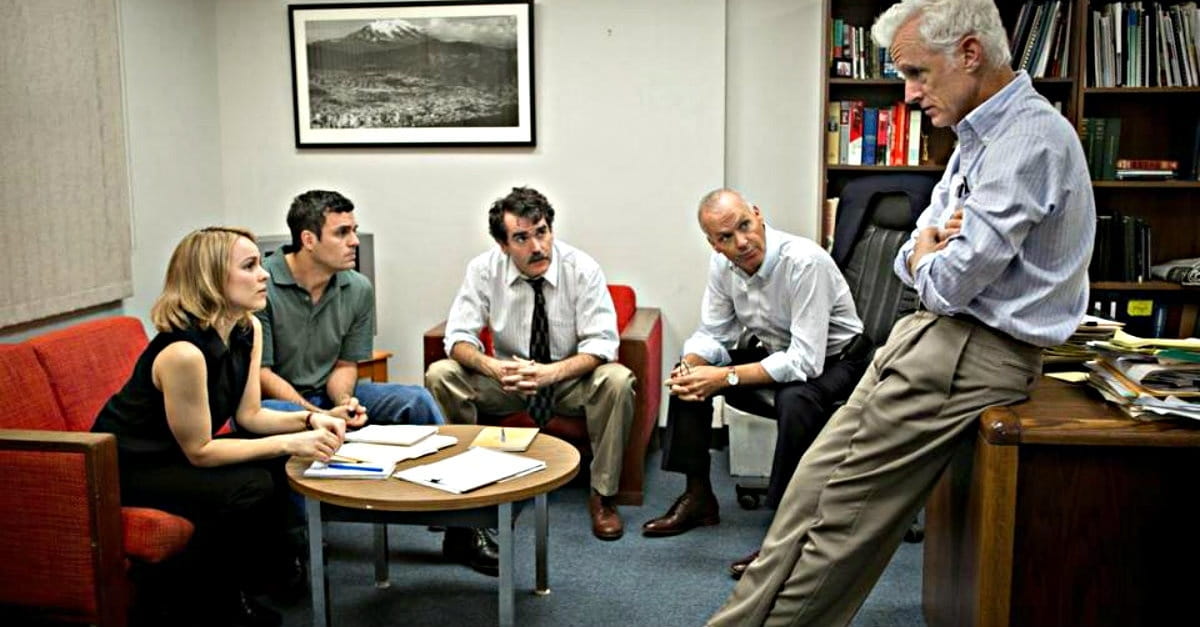
This is a complex film about moving past clannish parochial designations, one which ends up assigning the burden of guilt upon an entire populace for looking the other way, none of them quite aware of the scale of the problem they were avoiding. A familiar tale of scrappy underdogs taking on a secretive institution, it complicates that dynamic by having its protagonists operating under the auspices of a monolithic corporation, which many Bostonites are concerned intends to strip away the distinctiveness of their hometown paper, all while nosily digging into local matters and airing dirty laundry. Spotlight entertains such weighty concerns while also spinning a masterfully paced potboiler. A native son with a strong local pedigree, Robinson has to weigh the needs of his community against the ethical demands of a journalist, while making similar decisions for his reporters, namely the dangerously obsessive Michael Rezendes (Mark Ruffalo) and the blandly proficient Sacha Pfeiffer (Rachel McAdams), each of whom seems poised to suffer serious emotional damage from the production and fallout of the articles.

His motives are contrasted against the more sensitive demands of Walter Robinson (Michael Keaton), whose award-winning Spotlight team, charged with the production of lengthy investigative pieces, handles the burden of the journalistic work. This makes him the perfect person to spearhead the exposé, which seems to strike at the heart of everything the city holds dear. The task of revealing this rotten system falls to The Boston Globe, itself already in crisis, what with the arrival of Marty Baron (Liev Schreiber) as executive editor, appearing to herald greater control by the paper’s parent corporation with a salvo of buyouts and layoffs.Ī Jewish transplant from Florida, backed by the big-city pedigree of The New York Times, Baron is a classic interloper, a singularly focused workaholic unburdened by the constraints of social niceties, who doesn’t play golf or know the catechism. As the film imagines, it’s the singular character of the town, particularly its reliance on the moral authority of religious officials, that allowed dozens of pedophiles to remain at work, with the diocese shuffling them around the city once their crimes came to light, lying to parishioners, and offering scads of hush money. Even more insidiously, this environment encourages a private approach to community housekeeping, assuring that problems will be handled internally, and secrets will remain underground.īased on the events leading up to the 2001 sex abuse scandal that rocked the Roman Catholic Church, Spotlight patiently charts the gradual development from rumors and whispers to a full-blown revelation of years of astonishing exploitation. Such insularity fosters tight-knit communities and deep ancestral roots, but it has its downsides, specifically regarding the exclusion of outsiders, as one Armenian character notes to another of Portuguese extraction. With a populace that skews nearly 50 percent Catholic, the conventions of this metaphorical village are organized under the jurisdiction of the church, which provides the clearest point of connection for immigrants old and new.


Boston may be a major American city, but as described in Tom McCarthy’s Spotlight, it’s still a small town at heart.


 0 kommentar(er)
0 kommentar(er)
